The Deportables: A list of who’s being hunted, detained, deported, and denied entry by Trump 2.0 (Updated 3.28)
Trump’s team has stiffened travel rules and surveillance, claimed wartime powers, detained green card holders, and ended visas for another 50,000 immigrants, causing fear among US travelers, too.
[NOTE: This post has been updated with details of new detainee and deportee cases through March 28 as some are breaking news….]
March 28.
In this issue:
Trump Wages War On a New Class of Undesirables: The Deportables
Declaring War on Permanent Residents and Newer Arrivals
Ending Temporary Protection and Humanitarian Parole
Targeting political critics as terrorists, cancelling visas, and new rules for vetting social media
The nightmare facing trans students and other travelers
Legal pushback and many more lawsuits
New Travel Advisories and New Rules for Travelers on Tourist Visas
A List of Recent Deportables:
Mahmoud Khalil
Bhadar Kahn Suri
Jhon Chacin
Andrys
Gladys and Nelson Gonzales
Erce Reyes Barrios
Rebecca Burke
Jasmine Mooney
Rumeysa Ozturk
Alireza Doroudi
Llewelyn Dixon
Jeanette Vizguerra
The Disappeared: Jefferson José Laya Freites
Franco José Caraballo Tapia
Frengel Reyes Mota
Denied Entry: The UK Subs
Rasha Alawieh, MD
Lucas Sieleff
Jessica Brösche
Fabian Schmidt
Stop and Frisk: Luis
ICE Close Calls and Mad Dash Escapes: Ranjani Srinivasan
Momodou Taal
Weaponizing Safe Harbors and Sanctuary: Yunseo Cheung
Who’s Now in CECOT: A Full List (link)
How Do We Fight Criminalization of Immigrants and So-Called Deportables?
Trump Wages War On a New Class of Undesirables: The Deportables
The Trump administration won’t stop making it harder to visit the US. On Tuesday evening, the USCIS ordered its staff to increase vetting and pause final reviews of green card applications for some refugees and asylees now in the US. The agency did not detail who would be targeted, for what reasons, for how long, or any other critical questions asked by NBC News, which reported the update. Up to now, a person granted asylum or admitted as a refugee to the US waited one year before applying for a green card.
The newest salvo follows a dizzying series of Trump orders that have led to increased surveillance, warrantless arrests, detentions, deportations without due process and ongoing efforts to target selected visa holders including student protesters, visiting foreign academics, Venezuelans and Haitians, and travelers on tourist visas. Trump’s expanding immigration dragnet has impacted permanent residents, and is causing fear among US citizens who also worry about “extreme vetting” of travelers. Those targeted are being called “deportable” by Trump officials.
Using “Detainer requests” to spot deportables:
The administration is making use of “detainer requests” — a request ICE makes to local police when it becomes aware a person detained is eligible for deportation. That’s when they become deportable, say attorneys monitoring the trend. It is not a crime to be present on US soil — but it may be a civil violation. It is a federal crime to illegally cross a border or any other unauthorized entry; so is violating a previous deportation order. But Trump officials may not be parsing the cases - just detaining and then determining who is deportable.
As of March 23, there were 47,892 individuals in ICE custody, an increase of 1,600 detainees compared two weeks prior, on March 9, 2025, — increase of nearly 11,000 people compared to March 2024, based on the Transactional Records Access Clearinghouse, which tracks ICE activity. It has tracked an increase in every reporting cycle since Trump’s return to the White House.
Further below is a list of the growing number of the deportables, some without any records, who recently suffered harrowing experiences of arrest and ICE detention, including Venezuelans illegally transported to El Salvador to be imprisoned in what others calls a torture facility. Trump’s expanding immigration dragnet has impacted permanent residents (green card holders) and those with different visas.
Declaring war to criminalize permanent residents and newer arrivals:
On February 20th, the Trump White House designated the Venezuelan Tren de Aragua gang as a terrorist organization. On March 15th, Trump claimed wartime powers by resurrecting the 1798 Alien Enemies Act to begin deporting “noncitizens without any legal recourse.” The Venezuelans are viewed as a terrorist threat to national security, on the grounds that the gang has “invaded” the US.
On March 15, as thousands of Americans were protesting Trump policies in street marches across the US, two planes took off from Texas with 238 Venezuelans aboard, shackled to their seats. They planes were still on the runway as US District Federal Judge James Boasberg was issuing his order for them to stop the deportation plan, in response to a lawsuit. Trump officials claim they were in international waters by the time they saw his orders – a clear defiance of the law. The Venezuelans, some with green cards (see below) are now being held in Terrorism Confinement Center (CECOT in Spanish), a 40,000-capacity maximum-security prison in El Salvador, per an agreement with Trump’s regime to hold US deportees. Some deportees had signed papers agreeing to end their asylum petitions and to be returned -- to Venezuela. They have effectively been involuntarily deported. Their families have no means to contact them: CECOT allows no mail, phones, or visits with inmates.
Media reports have confirmed some of the confirmed Venezuelan deportees have no criminal records while their families refute any affiliation or membership in the gang. On March 21, Venezuela’s Interior Minister Diosdado Cabella said that none of the hundreds of Venezuelans deported to the CECOT facility is a member of Tren de Aragua. That has failed to stop Trump’s team from escalating its rhetoric and justifying its actions. Under fire, he promised hundreds more will be deported.
Meanwhile, detention conditions inside CECOT are deemed inhumane by international human rights groups. They have documented complaints of extreme overcrowding, systemic abuse, denial of medical care, and a complete communications blackout for inmates. At least one deportee is a Venezuelans gay man. Rights advocates report that LGBTQ+ individuals at CECOT are often targeted for abuse.
Targeting political critics as terrorists, cancelling visas, and new rules for vetting social media
Similarly, some pro-Palestinian students and faculty at US universities including Mahmoud Khalil (see below) are being charged with antisemitism and “terrorism” by association – not on the grounds of evidence – based on the Trump regime’s view that their protest aligns with Hamas, a classified terrorist group. They cancelled his student visa and green card, and promise to do that for other students they are seeking to arrest and deport. (See our earlier coverage of Khalil and his statement from detention here and updates for travelers).
Trump has also moved to pull hundreds of dollars from Columbia, and warned 60 universities that they may face penalties, based on investigations into antisemitism now unfolding on college campuses. ICE officials have demanded information on students and warned university leaders to crack down on pro-Palestinian protesters and inform ICE about any students who joined the protests – a resurrection of McCarthyite tactics.
Ending Temporary Protection and Humanitarian Parole
The Trump regime has also ended temporary protective status (TPS) for Venezuelans and Haitians, and now, has ended humanitarian parole for some 50,000 Cubans, Nicaraguans, Venezuelans and Haitians (as of April 24). That follows an earlier Trump order ending humanitarian parole impacting 875,000 migrants fleeing war and strife from Ukraine and Afghanistan, and Cuba, Haiti, Nicaragua and Venezuela.
The administration has also changed other rules. One requires consular officers to not follow past decisions when reviewing Non-Immigrant Visa (NIV) waiver requests. If someone got a past visa waiver, they can’t count on getting that again. Another DHS rule is making US citizens and tourists anxious, too. It asks all green card and citizenship applicants, and some foreign visitors to the US, to list all social media accounts and online usernames they’ve used in the past five years on Facebook, Instagram, Twitter and LinkedIn. A request for social media information has now been added to Form I-485 – the Application for Adjustment of Status and Form N-400 (the Application for Naturalization, as well as seven other immigration forms. The rule is an update: DHS has already been collecting social media information about all immigrants passing through the immigration system since 2017, including naturalized citizens and permanent residents (green card holders). And last June, a State Department policy required immigrants seeking entry to provide information about their social media accounts.
Legal pushback and many more lawsuits
Legal groups have filed lawsuits to push back against most of these measures, including for individuals held at CECOT – if they can identify them. Mostly they’ve won temporary restraining orders or belated ones, like Judge Boasberg, who failed to stop the planes to CECOT. His decision and others have been appealed by the thousands of lawyers that Trump has brought on board to defend his use of arcane laws to redefine immigrants and political opponents as enemies of the US. Some are headed for hearings at the Supreme Court, where a conservative majority will be the ultimate arbiter. As the battles unfold in courtrooms across the country, ICE is actively hunting students, using new AI tech, location scouting, and facial recognition to identify those who attended Gaza protests or commented on social media. Across US campuses, students are feeling terrorized – being treated as such. Trump has repeated that the recent arrest of Mahmoud Khalil was just the first "of many to come".
New Travel Advisories and New US Rules for Travelers on Tourist Visas
Several universities warned students not to travel outside the US on Spring Break and are emphasizing this with the latest arrests on March 25 and 26 of more students at Tufts and the University of Alabama (see cases below). Several countries including Britain, Germany and France have also issued travel advisories telling their nationals to avoid travel to the US. Finland, Denmark and Germany have also warned transgender and nonbinary nationals to exercise caution when traveling to the US.
On March 26, Canada also updated a travel rule, in response to new US restrictions on travelers. Canadians traveling to the US for more than 30 days must now register with US authorities or face “penalties, fines and misdemeanors,” per the Canadian advisory. The new Canadian rule goes into effect on April 1 and is in response to Trump’s “Protecting The American People Against Invasion” order that requires all visitors to the US who plan to stay longer than a month to register with the US government or face consequences.
US businesses and university sponsors have also told people who regularly travel to work in the US on H-1B visas to avoid renewing (“restamping”) visas now, and to be aware they are likely to face extreme vetting.
For his part, Secretary of State Marco Rubio, who has been fingered as they key person directing ICE targeting of students, recently defended the revocation Khalil’s green card and student visa, stating, "No one has a right to a student visa. No one has a right to a green card, by the way. So when you apply for student visa or any visa to enter the United States, we have a right to deny you for virtually any reason…."
The nightmare facing trans students and other travelers
Since Trump’s election, his administration has enacted multiple anti-trans orders that seek to criminalize gender identity, including ending the X marker on passports. That’s created a nightmare for transgender and nonbinary individuals, including tourists, green card holders, and citizens who fear an ICE crackdown, cancellation of their passports, and possible detention and deportation for non-citizens. A Trump executive order now declares the US will only recognize male or female gender markers. While those with non-expired passports bearing an X gender marker can travel with it, transgender advocates warn that not all customs officials will respect the rules; there have been increased reports of hassles of trans travelers. Others who sought to renew their X marker passports saw them seized, or returned cancelled.
As it stands, Americans cannot renew an X marker passport, but must use the gender marker and corresponding name they were assigned at birth. The new rules leave individuals who changed their passports with new names and gender markers in a perilous legal situation if they entered the US with a visa stamp on their I-94 form with a different name and gender than their new passport and I-20. That is the scenario I discussed with a very worried trans student planning to return home outside the US this week.
Travel advocates have offered one tip to try making entry into the US safer: head first to a designated Preclearance airport outside the US such as cities in Canada or Ireland. CBP has such locations in 6 countries. Some LGBTQ+ advocates suggest trans travelers fly to a PreClearance entry point, so if they are interrogated there over a passport or visa issue, they’ll be in a more trans-friendly country, and not at immediate risk of ICE detention in the US. But a note of caution: as Becky Berke’s case below illustrates, Canadian officials also strictly enforce visa rules. So discuss any concerns with a qualified immigration attorney. See our recent stories on traveling while trans and our visa round-up for tips and resources to help travelers with different visas.
A List of Recent Deportables:
Mahmoud Khalil
Khalili, 30, is best known as the lead Columbia University student negotiator for the pro-Palestinian solidarity campus occupation movement. His warrantless arrest by ICE on March 8th put an initial global spotlight on the unfolding immigration dragnet that has quickly escalated against student and other green card holders. He has a Master’s degree from Columbia University's School of International and Public Affairs.
He was born in Syria to Palestinian parents but has Algerian citizenship, according to a DHS document obtained by CBS News. Khalil was returning home from dinner with his wife, Noor Abdalla, a US citizen then eight months pregnant, on the night they were stopped by ICE near their Upper West Side apartment. The agents informed Khalil his student visa was cancelled. When he told them he has a green card, they stated that it had been revoked, too.
Khalil was first taken to an ICE facility in New Jersey, then transferred to one in Louisiana, run by the private contractor, The Geo Group, where he remains in detention. ICE hopes to deport him on grounds that he is a terrorist sympathizer of Hamas, but provided no public evidence then for their charges. He is not facing criminal charges now. Khalil’s lawyer petitioned a New York federal judge who moved his case to New Jersey, where he was first transferred. Trump’s lawyers hope to have it heard in Louisiana, where the Fifth Circuit federal court is stacked with right-wing activist judges known for anti-immigrant rulings.
In the latest twist, Trump Department of Justice lawyers added a new charge of visa fraud as evidence for their actions, claiming Khalil failed to disclose his prior work with the UNRWA, the UN agency for Palestinian refugees, and work for the British embassy in Beirut, as well as a group known as Columbia University Apartheid Divest, on his green card application. They say this makes his green card invalid. "Khalil is now charged as inadmissible at the time of his adjustment of status because he sought to procure an immigration benefit by fraud of willful misrepresentation of a material fact," states the DOJ in its court filing. Law experts predict the case is headed to the Supreme Court as a test of the legality of Trump’s use of new wartime Alien Enemies Act and anti-terrorism laws aimed at students critical of US foreign policy.
His wife Noor Abdalla recently issued a statement of support for her husband, and claims he was initially denied his daily medicine for a stomach ulcer and proper food. National protests have called for his release.
Badar Kahn Suri
Badar Kahn Siri is an Indian citizen and graduate student at Georgetown University who was also teaching and was arrested on March 17 in Chantilly and detained by ICE for alleged violations of terms of his academic J-1 visa. He was first taken by ICE to the Alexandria Staging Facility in Louisiana Virginia, and his lawyer was told his J-1 visa had been revoked.
Kahn Suri is accused of being opposed to US foreign policy in the Middle East, along with his wife, Mapheze Saleh, who is a US citizen of Palestinian. Kahn Suri is a postdoctoral fellow at the Alwaleed Bin Talal Center for Muslim-Christian Understanding at the Edmund A Walsh School of Foreign Service at Georgetown. His research focuses on peace building in the Middle East, and he has widely traveled in that region. On March 19, US Border Czar Tom Homan tweeted on X that Khan Suri is accused of “spreading anti-American propaganda” and that “DHS will deport him the same way as Mahmoud Hamas.”
His lawyer quickly filed a lawsuit for his immediate release, noting that Kahn Suri has no criminal record and has yet to be charged with any crime. He argues that his client is being punished due to his wife’s identity as an American woman with Palestinian roots whose father was Ahmed Yousef, reportedly a senior advisor to the Hamas leadership, and a disciple of Sheikh Ahmed Yasin, the founder of Hamas, according to a March 20 Times of India report. Trump officials view Mapheze Saleh as a portal for Hamas and thus her husband Suri a terrorist threat by association. Last week a federal judge ruled that Kahn Suri cannot be removed from the country while his petition is pending.
On March 28, Khan Suri was transferred to the 782-bed Prairieland Detention Facility in rural Alvarado, in north Texas, operated by the private prison contractor LaSalle Corrections runs for ICE. It opened in 2017 under the Trump 1.0 administration. Khan Siri’s lawyers have asked for his return to Virginia where his legal and immigration counsel are based. Nationwide protests have grown demanding his release along with student protesters targeted by ICE (see list).
Jhon Chacin
On March 13, Venezuelan native Chacin was sent to the mega-prison in El Salvador instead of being transported by plane back to Venezuela per his agreement to return home after a failed asylum request. Chacin’s brother Eudomar told reporters that he spoke to his brother from detention at a Texas ICE facility the day before his scheduled return flight. Jhon told his brother that weather had delayed his return and “he was scared because he was seeing unusual movements by staff at the detention center.” He has disappeared.
Andrys
Andrys, 23, is an LGBTQ Venezuelan and make-up artist was detained days before his asylum court hearing in the US and deported without due process and sent to the CECOT facility. He is accused having ties to the Tren de Aragua gang, despite having no record. His lawyer Alvaro M. Huerto at the Immigration Defenders Law Center Litigation says his client has no ties to the gang or criminal record or reason to be deported. ICE officials claim he had a tattoo that resembles a gang tattoo. “It’s very flimsy,” Huerta told a Washington Blade reporter. Lawyers told reporters that ICE had done nothing to facilitate contact with Andrys as of March 21, and would not make him available for his next ICE hearing in the US two weeks later.
Gladys and Nelson Gonzales
Gladys Gonzales, 55 and Nelson Gonzales. 59, a native Colombian couple who had lived for 30 years in Laguna Niguel, near San Ysidro, CA, and have three US-born daughters living with them in the US and a US-born grandson. The couple entered the US illegally in November 1989 and were ordered to leave in 2000 after an immigration judge granted them voluntary departure. They had repeatedly sought legal avenues to stay, via successive appeals to various immigration appeals courts and had never missed an immigration appointment. They paid US taxes, and raised three daughters who are US citizens. The couple are being held in a Louisiana ICE facility.
Erce Reyes Barrios
Barrios, 36, and a Venezuelan soccer player, was recently deported to El Salvador CACOT prison on suspicion of being a Tren de Aragua gang member after US officials deemed his tattoo suspicious. Barrios, who loves Madrid Real, has a tattoo of a crown sitting atop a soccer ball with a rosary and the word "Dios," -- God in Spanish – on it that resembles the logo of his favorite soccer team, Real Madrid, according to the player’s attorney, Lynette Tobin, who stated in a sworn testimony on behalf of her client that US officials had misinterpreted the tattoo’s meaning. A US asylum seeker, Barrios was detained last September and was awaiting a court ruling on his asylum claim.
Rebecca Burke
Burke, 28 is a British artist and backpacker, and a vegan from Portskewett, Monmouthshire, UK. She was detained for 19 days in a cold ICE facility in northwest Washington on February 28th after initially being detained by Canadian officials for a possible violation of her ESTA tourist visa. She was handcuffed and put into leg and waist chain by US ICE officials. Her story generated global media attention and prompted UK officials to pressure US officials for her release, and US officials to visit her in detention.
Burke was first detained at the US-Canada border and denied entry by Canadian officials after she revealed her backpacker plan to go visit a Canadian family for a month in Vancouver – an exchange of free lodging for light household chores. She claims she unaware that she was violating ESTA tourist visa rules that forbid work – even if no cash was involved. The ESTA visa allows travel for 90 days; she was on day 50. She had previously done a similar 2-week US exchange on an ESTA visa in 2023.
Burke had originally flown into NY, then stayed with a host family in Portland, OR. She planned a final month’s visit to Vancouver then a return to the US to fly back home to the UK. Leaving the US, Canadian officials classified her an “illegal alien” and handed her over to the Northwest ICE Processing Center as US ICE officials assessed if she’d broken any rules. Burke was questioned for six hours. She was then put into leg and waist chains and handcuffed by ICE officers and sent to stay in a crowded, freezing cold ICE dormitory that held 110 people for 19 days. She was given a jumper to wear, and a towel, and said the freezing-cold facility lacked enough blankets or clothes for detainees. Other detainees had been in the facility for months to years, she claimed.
Burke was escorted by ICE in handcuffs and chains to fly back to Heathrow and arrive on March 18th; ICE officials did not notify her parents. The UK has since issued a US travel advisory warning British nationals to avoid traveling to the US and to be aware of the US extreme vetting policy.
Jasmine Mooney
I recently reposted Janice Mooney’s personal testimonial about her grueling ordeal in ICE detention after a work visa snafu, so will summarize it here. Mooney is a Canadian actress from Whitehorse, Yukon, and best known for her role in American Pie Presents: The Book of Love. She is also a co-founder of the wellness brand Holy! Water and had been working and living in the US on a valid H-1B visa.
Her ordeal began after a US agent claimed her visa had not been properly processed, and revoked it, saying she could not work for a US company that used hemp as one of its beverage ingredients. She was ordered to renew it and was later detained by ICE on March 3 when she tried to do so. She was shackled and taken to a local ICE facility then transferred to the large ICE prison facility at Mesa Otay in San Diego run by Core Civic. It has long been plague by complaints of overcrowding and poor conditions, per the ACLU. There were 140 women detained with her in a freezing facility without enough blankets, or beds. Mooney slept on the concrete for hours.
Many other women there had been there for weeks to months, she stated; some had overstayed their initial visas, others had been denied. Many were well-educated and spoke multiple languages. All had been detained without warning. She was finally transferred in shackles with others, including men, back to San Diego at 2 a.m. She paid for her own flight home to Canada.
Other ICE detainee cases shared by Mooney:
One was a woman with a 10-year work visa who mistakenly crossed into Mexico via the wrong lane in San Diego. She lacked her passport. She and her husband were both detained.
Another family of three had work visas, had been living in the US for 11 years and were awaiting their green cards. She was instructed to bring her whole family to an immigration check-in, and they were snagged: ICE told them they would be processed from the detention center.
A Canadian woman had been detained with her husband at a traffic stop. Six weeks later, she languished in prison.
A Venezuelan woman who overstayed her US visa by a month when back home and was picked up by ICE when returning to LA from Miami. Since Venezuela wasn’t accepting deportees, she remained in Mesa Otay.
A female Indian student who overstayed her visa - by 3 days – en route to returning home to India. She sought a new valid visa to finish her Master’s degree, but was handed over to ICE and detained instead, after being found in violation for having overstayed her prior visa.
Rumeysa Ozturk
On March 26, US immigration officials detained Ozturk, 30, a Tufts University doctoral student who had expressed support for the Palestinian solidarity movement in GAZA. She has a valid F-1 visa and was walking to meet friends to break the Ramadan fast when she was picked up by masked US agents and taken into custody near her home off campus in Somerville, Massachusetts. She was quickly transferred to an ICE detention facility in central Louisiana. He lawyer, Mahsa Khanbabai, told reporters that no charges have been filed against her. Somerville is a sanctuary city.
DHS Spokesperson Tricia McLaughlin posted on X that Trump authorities determined that Ozturk ha "engaged in activities in support of Hamas, a foreign terrorist organization that relishes the killing of Americans.” They did not provide evidence of this, and Ozturk’s friends assume that any statements deemed pro-Palestinian are being labeled as sympathetic to Hamas. Last year, Ozturk was among four co-authors of an Op-Ed in The Tufts Daily student newspaper on the Gaza student protests that criticized Tufts policies and leadership, including its failure to respond to demands that Tufts divest from companies with ties to Israel and to "acknowledge the Palestinian genocide." It did not mention Hamas.
Her arrest is the first known immigration arrest of a Boston-area student, they say. After her arrest, neighbors said they had noticed a black Ford Explorer idling all day on the corner with an individual in it taking notes. Tufts leaders said they had no advance knowledge of the incident and did not share any information with federal authorities prior to Ozturk’s detention, while her arrest occurred in an off-campus area. They confirmed her visa status had been terminated, and they were seeking information on what had happened. A local FBI spokesperson at the Boston office told WBZ-TV that "It's an ICE matter." Ozturk lawyer is moving quickly to seek her release and demand she not be deported outside of the US.
Alireza Doroudi
Doroudi, an Iranian doctoral student at the University of Alabama (UA) in Tuscaloosa who studies mechanical engineering, was reportedly detained by ICE at 5 a.m. on Tuesday, March 26th, at an off-campus site. He specializes in metallurgical engineering, per his Linked In profile. Doroudi’s name appeared on an ICE website later Tuesday listing his status as “in ICE custody.”
Doroudi first entered the US on an F-1 student visa issued by the US Embassy in Oman in January 23, and cleared all immigration checks, but was notified six months later that his visa had been revoked. He immediately contacted UA’s International Student and Scholar Services (ISSS) program to address the issue, and was informed by ISSS that he could legally remain in the US as his case was being resolved. The ISSS told him the matter was not unusual or problematic and he only had to maintain his student status, per The Crimson White, the UA campus newspaper, which first reported his detention.
A UA spokesperson told reporters the university did not know why Doroudi had been picked up and they are inquiring. ICE officials did not respond to media queries on Wednesday and had provided no further information on his status.
Llewelyn Dixon
Dixon, 64, is a Philippine lab technician at the University of Washington Medicine who was detained on February 28th by US authorities at Seattle-Tacoma as she returned from a trip to see family in the Philippines. She has a green card and has lived in the US for five decades, with a home in Edgewood, Pierce Country. She was transferred to the ICE detention center in Tacoma on March 2; her family had no idea why. On March 3, Dixon called Madriaga’s sister, Madonna, from Tacoma to say ICE had taken her phone. She had memorized her sister’s number because it was connected to her Safeway loyalty card.
Dixon’s family in Washington are all are US citizens via naturalization, except Dixon. She reportedly kept her Philippine citizenship as a promise to her grandfather, in order to retain a family property in the Philippines. The family immediately contacted a lawyer and has regularly stated protests in front of the Tacoma ICE detention center and alerted media to her case.
Her lawyer Benjamin Osorio now believes her detention is related to a resolved 2001 nonviolent conviction. It did not prevent Dixon’s renewal of her green card or international travel in 2024 to the Philippines and Turkey, per The Seattle Times. She was never required to serve time in jail or prison as a result of the conviction and completed her sentence. Her family did not know about the matter. “It’s an old conviction,” her lawyer Osorio told The Seattle Times. “She probably never thought she had to worry about something like this.” But now, versus then, he said, “It’s maximum enforcement,” he said. “We’re seeing stuff we never saw before.”
Back then, Dixon pleaded guilty in federal court in Seattle to one count of bank embezzlement in 2000, admitting she took $6,460 in 1999 from a vault at the Washington Mutual bank at the White Center Financial Center on eight separate occasions while employed as a vault teller and operations supervisor. She was required to repay the full amount of $6,460 in restitution, and served a 30 days’ confinement sentence at the Pioneer Fellowship House. Federal court records show completed payment in July 2019 and served her time.
Her niece now says Dixon may have known there could be risks of traveling with Trump back in office, but she had to take care of a family matter in the Philippines. “She’s always been there for us. She’s always been watching over us,” said Madriaga, who used to live in Kent and now lives in Honolulu. “I believe that’s her character.”
Lewelyn Dixon
Dixon, 64, is a Philippine lab technician at the University of Washington Medicine who was detained on February 28th by US authorities at Seattle-Tacoma as she returned from a trip to see family in the Philippines. She has a green card and has lived in the US for five decades, with a home in Edgewood, Pierce Country. She was transferred to the ICE detention center in Tacoma on March 2; her family had no idea why. On March 3, Dixon called Madriaga’s sister, Madonna, from Tacoma to say ICE had taken her phone. She had memorized her sister’s number because it was connected to her Safeway loyalty card.
Dixon’s family in Washington are all are US citizens via naturalization, except Dixon. She reportedly kept her Philippine citizenship as a promise to her grandfather, in order to retain a family property in the Philippines. The family immediately contacted a lawyer and has regularly stated protests in front of the Tacoma ICE detention center and alerted media to her case.
Her lawyer Benjamin Osorio now believes her detention is related to a resolved 2001 nonviolent conviction. It did not prevent Dixon’s renewal of her green card or international travel in 2024 to the Philippines and Turkey, per The Seattle Times. She was never required to serve time in jail or prison as a result of the conviction and completed her sentence. Her family did not know about the matter. “It’s an old conviction,” her lawyer Osorio told The Seattle Times. “She probably never thought she had to worry about something like this.” But now, versus then, he said, “It’s maximum enforcement,” he said. “We’re seeing stuff we never saw before.”
Back then, Dixon pleaded guilty in federal court in Seattle to one count of bank embezzlement in 2000, admitting she took $6,460 in 1999 from a vault at the Washington Mutual bank at the White Center Financial Center on eight separate occasions while employed as a vault teller and operations supervisor. She was required to repay the full amount of $6,460 in restitution, and served a 30 days’ confinement sentence at the Pioneer Fellowship House. Federal court records show completed payment in July 2019 and served her time.
Her niece now says Dixon may have known there could be risks of traveling with Trump back in office, but she had to take care of a family matter in the Philippines. “She’s always been there for us. She’s always been watching over us,” said Madriaga, who used to live in Kent and now lives in Honolulu. “I believe that’s her character.”
Jeanette Vizguerra
Vizguerra is an immigration activist, undocumented immigrant and mother of four who was recently detained by ICE and is being held in its Aurora, CO facility. She was once named among Time magazine’s 100 most influential people in 2017 after taking refuge in a Denver church for three years to avoid deportation. She first came to the US in 1997 with her husband and oldest daughter; her three other children were born in the US. They sought refuge after her husband had been kidnapped three times in Mexico, seeking safety.
Vizguerra has repeatedly sought to gain a visa given to crime victims that allows them to remain in the US since she left sanctuary in churches in 2020. She has no criminal record. She has also become an outspoken advocate for people fleeing violence to gain legal status, and critical of the criminalization of asylum seekers.
She was arrested on March 17th during a shift break at a Denver-area Target store where she worked as a cashier. She had noticed unmarked cars following her for days before ICE turned up, her daughter Luna Baez told CNN. A group of ICE officers “surrounded her on all sides,” Baez told CNN after speaking to her mother about the arrest. “From there she was put in a truck, the whole time she told me they were laughing at her.”
As of March 29, Baez had spoken twice to her mother. Baez, who has gained public support for her effort to be released including from the American Friends Service Committee and church leaders who support the right to provide religious sanctuary for refugees. On March 18th, dozens of people rallied outside an ICE detention facility in Aurora to demand her release. Back in 2009, Vizguerra was charged for not having a US license or insurance and driving with an expired license place – but the charges were dismissed. She was also charged with using a fake Social Security card on a job application. She said she was not aware the number belonged to another person, but pleaded guilty of “attempted possession of a forged instrument.” That put her in the crosshairs of immigration officials.
Vizguerra says ICE never showed her warrant and did not follow due process in recently arresting and detaining her. ICE claims it followed due process. Petitions challenging her detention have been filed in both Denver’s federal court and the 10th US Circuit Court of Appeals by her lawyer Laura Lichter. U.S. District Judge Nina Wang has issued a temporary stay on her deportation as the legal battle plays out. On March 28th, Wang told NBC Newsthe case raises “complex issues” about immigration law and she had not found a similar case.
Colorado Governor Jared Polis, a leading Democrat and critic of Trump’s immigration policies, said Vizguerra is not a threat to the community and “deserves due process.” The AFSC also released a statement of support for her case, stating, “Jeanette Vizguerra has been a pillar of the community for decades, advocating for immigrant rights and supporting countless families.”
Missing, Denied Entry, Returned, and Close Calls:
The Missing:
Jefferson José Laya Freites
Layla Freites, 33 is a Venezuelan migrant who is believed to have been illegally detained and transported to the El Salvador CECOT prison, according to his wife and his US attorney. She spotted her husband on a video about the prison and insists he is not in any gang. Freites and his wife came to the US 15 months ago and had requested asylum. Freites failed to turn up for his important pending asylum-and-detention hearing in Aurora, Colorado, a city was made infamous last fall when JD Vance and Trump claimed the Tren de Aragua gang had taken over the city.
Margaret Cargioli, an attorney with the L.A.-based Immigrant Defenders Law Center representing Leyla Freitas’s family, told the court that he’d been detained by ICE after he and a cousin were stopped by federal agents at traffic stop in Denver on January 28th. While both men had valid work authorizations and pending asylum hearings, they were taken into custody at the Aurora ICE facility for a month. They then informed their spouses they were to be returned to Venezuela and transferred to an ICE facility in Texas.
Laya Fretes’ son recognized his father based on a cut on his hand after seeing a social media video posted by Salvadoran officials about the Venezuelans who’d arrived at CECOT the weekend of March 15-16. Stated his wife to USA Today: “My husband doesn’t even have tattoos… What happened to them is a great injustice.”
Franco José Caraballo Tapia
Carballo, 26, a barber from Venezuela, entered the US via the southern border n 2023 and promptly turned himself into border agents and applied asylum. He had attended all his court-ordered ICE check-ins and recently had his ankle monitor removed. He has no criminal record. To the shock of his wife, Johanny, and his attorney, he was detained by federal immigration agents on Feb. 9 when he turned up for another check-in on his case Feb. 9. The coupled lived in Sherman, Tx, near Dallas and had married a year ago. He tearfully called his wife to say he was being deported and is presumed among the deportees flown to CECOT in El Salvador. The hard evidence of his deportation is the disappearance of his name from the ICE Online Detainee Locator System. "I was in complete shock," stated Carballo’s attorney Martin Rosenow t USA Today.
He says that US officials may have focused on Carballo because he has unusual tattoos, including one of a stopwatch inked on his arm marking his daughter’s birth date, and a razor – his trade tool as a barber. She is from a previous marriage and lives in Venezuela with grandparents. Carballo planned to send for her after getting his asylum.
Importantly, Carballo and his wife fled their hometown of Yaracuy after attending anti-regime marchesled by Venezuelan opposition leader María Corina Machado to protest leftist dictator President Nicolás Maduro where they were roughed up by Maduro loyalists. They passed their “credible fear” test based on that and other incidents. As a result of her husband’s detention, Johanny became homeless and sought refuge with relatives in New York. Trump has been negotiating with Maduro, who has violently cracked down and imprisoned critics of his regime, to now take in Venezuelans who fled to the US for refuge. That prospect is also dangerous, say human rights officials.
Frengel Reyes Mota
Reyes Mota, 24, is a Venezuelan asylum seeker who came with his wife, Lilyana Sanchez, to the US in 2023. He was detained by ICE on February 4 while attending a regular immigration check-in in Tampa, where agents said he was being placed in ICE custody on suspicion of being a member of the Tren de Aragua gang, which he denied. He and his wife had fled Venezuela’s economic collapse and repressive political regime and his wife’s child from an earlier relationship, now nine years old. Reyes Mota is more than his stepfather, she told the Miami Herald – he is a full-on, doting father. She described him as a quiet, serious, hardworking man employed as a housepainter, who also loves pets and spoiled his adopted dog, Sacha.
Reyes Mota has been sent on to the CECOT prison in El Salvador, according to his lawyer Mark Prada, who informed an asylum immigration judge on March 26 that his client had been forcibly deported. His wife and lawyer both asserted that Reyes Mota is not member of the Venezuelan Tren de Aragua gang, has no incriminating tattoos, and no criminal record. In February, he contacted his wife to tell her he’d been picked up, and asked about her and his son’s welfare. His name then turned up on the list of Venezuelan deportees flown out of the US on March 15th.
The judge reviewing his case confirmed that there was no formal removal order from any court for Reyes Mota. According to the DHS, Reyes Mota’s I-23 form states “the he may be a Tren de Aragua associate,” but it states that has no criminal record or immigration history in the US. The form includes multiple errors, including the names of other people, the use of female pronouns, and two different unique identifier numbers used to track immigrants, per the Miami Herald’s report. The judge reviewing it asked if the government had erred. DHS officials present argued that the hearing was not to analyze evidence related to the case, but that they would investigate it. ‘
As of March 26, there were no further scheduled hearings. Reyes Mota’s wife provided visual and hard copy evidence showing her husband had no tattoos, had followed all legal steps to pursue his asylum claim, and had no record.
Denied Entry:
The UK Subs
Three members of the UK Subs band -- Alvin Gibbs, Marc Carrey and Stefan Häublein -- were denied entry into the US and detained at JFK airport, then deported back to the UK; only bandmate and vocalist Charlie Harper was allowed in. The band is known for songs critical of Trump. Harper later played the band’s scheduled LA gig with stand-in musicians. After landing in LA, Gibbs told reporters he’d been informed he would be questioned by US agents after. They contended that he had an incorrect visa, but also staid another reason was behind the UK Subs being denied entry.
He was brought to a holding cell where two of his bandmates were detained, along with Colombian, Mexican and Moroccan detainees. His phone, passport and luggage were confiscated. His plane had landed at 7 pm; he was interviewed a second time at 2 a.m. By the time he was released, his partner Roz had waited 25 hours for his release. She had been allowed to pass through without incident. Gibbs was then put on a 11-hour return flight to his home in France. He assumes the band’s past statements about Trump led to their being flagged, but they were never told by Trump officials.
Rasha Alawieh, MD
Alawieh, 34, is a Rhode Island doctor at Brown Medicine who was blocked from re-entering the US at Boston’s Logan airport on __ after visiting her parents in Lebanon. She holds a HB-1 visa valid until mid-2027. Alwaieh was subjected to an ICE screening where agents claimed they’d seen pictures she’d deleted on her phone before traveling that suggested she was a sympathizer of the terrorist group, Hezbollah. The pictures showed she had attended public funeral for the longtime Hezbollah leader Hassan Nasrallah, killed by an Israeli airstrike last September, per CNN News.
She was put on a plane to Paris, then later continued on to Lebanon where she denounced the actions of US officials, with her lawyer in tow. Trump officials now say she is accused of supporting the Lebanese Resistance Movement and Hezbollah. ICE officials claim Alawieh did not hide her attendance at the funeral, or the pictures, and said she supported him as a spiritual leader not a political leader. But she’d removed the pictures out of fear of an ICE vetting.
Adding fuel to the fire, the White House released a social media post of a photo of Alawieh next to a waving Donald Trump waving, with the words, “Bye-bye Rasha.”
Denied Entry, Detained, then Deported Back Home:
Lucas Sieleff
Sieleff, 25, a plumber and a German visitor to the US on a 90-day tourist visa, was crossing back into the US from Mexico with his girlfriend when border authorities stopped him, and soon put him in shackles. They denied him a translator or lawyer, and accused him of living in the US in violation of his tourist visa He was put into an ICE detention center in San Diego for 16 days, where others have complained of freezing holding cells and other hardship conditions, then sent back to Germany. He was then allowed to book a flight home.
Jessica Brösche
Brösche, 29, is a Berlin-based tattoo artist who was detained for six weeks at the CBP ICE border facility in San Ysidro after seeking to enter the US on a tourist visa. She was kept in solitary confinement during her first eight days, she told reporters. Her ordeal began on January 25 as she sought re-entry from Tijuana, Mexico, where she’d been traveling. US. Border officials denied her entry and sent her to the Otay Mesa Detention Facility in San Diego and remained in detention until March 11th. She says she spent the first eight days there in solitary confinement, and repeatedly asked ICE and CBD why she had been detained.
Brösche had originally planned to visit the US for three weeks then return to Germany on February 15th. She was headed for Los Angeles where she planned to tattoo one of her best friends, Nikita Lofving, who makes clothes – a creative labor exchange that did not involve money. “ “We have an agreement between artists,” Lofving told CNN affiliate KGTV. “She’s one of my best friends. We’ve been working on this tattoo project on my body for the last five or six years, and in exchange, I make clothes for her.
ICE officials told KGTV that she’d been detained due “to the violation of the terms and conditions of her admission.” It is assumed ICE viewed her tattoo plan as a violation of her tourist visa which does not allow a person to work (see case of Rebecca Burke, who was also detained on those grounds).
“I mean, she was coming to work, but not really for money,” Lofving said. “We have an agreement between artists. She’s one of my best friends. We’ve been working on this tattoo project on my body for the last five or six years, and in exchange, I make clothes for her.”
ICE also told KGTV that if a foreign traveler is denied entry into the US and cannot book travel back to their country of origin, “he or she will be turned over to the custody of Immigration and Customs Enforcement (ICE).” Lofving remained in regular contact with her friend. In a March 1 phone interview with ABC 10 News in San Diego, she said, “[Brösche] says it was like a horror movie. They were screaming in all different rooms. After nine days, she said she went so insane that she started punching the walls and then she’s got blood on her knuckles.” CoreCivic, the private company that runs Otay Mesa for ICE, denied Brösche’s claims of solitary confinement, per ABC 10 News.
Fabian Schmidt
Schmidt is another German national – but has a green card – who was detained at Boston Logan by ICE and aggressively interrogated, per his lawyer David Keller. He was later placed in a Rhode Island detention center. The Loban airport screening was so intense and intimidating that Schmidt, his attorney told the Wall Street Journal, that “… medically speaking, he needed to be transported to the hospital.” The Wall Street Journal is among media covering these cases.
Stop and Frisk Close Calls
Stop and Frisk:
Luis
Luis, a University of Minnesota employee and fundraiser who also works for the ACLU was stopped by the police when driving from Minneapolis airport to Houston in an Enterprise rental car at 11 pm on a recent Sunday. In testimony he has shared via social media, he said several police cars soon showed up and claimed the VIN of the license plate on the rental was “suspicious”. They removed him from the car, and he stated, “The officer slammed me against the car, busting my lip, and handcuffed me.” The officer interrogated him, demanding to know where he’d come from, and denying him access to call an attorney or inform his wife back home. They asked him if he had drugs, which he denied.
The police brought a K-9 unit and tow truck to lift the vehicle, then soon claimed to have found bags of white power. They demanded to know if Luis had ties to the Mexican cartel, which he firmly denied. The police soon confiscated the car and let Luis go, and drove him back to a hotel. Afterward, Luis was informed that “incidents like these in the state of Texas have become all too common since the initiation of Operation Lone Star in 2021, and have only increased since the beginning of 2025,” he told reporters. “I was told that the police probably never found a ‘hidden compartment’ underneath the vehicle and there were never any drugs.”
ICE Close Calls and Mad Dash Escapes
Ranjani Srinivasan
Srinivasan, 37, is a Columbia University international student and a Fulbright recipient from India who had entered the US to study on a student visa. On March 7, three federal immigration agents fist showed up at a Columbia University apartment searching for Ranjani Srinivasan and knocked on the door. She did not open it. She had recently been informed her student visa had been suddenly revoked by the State Department without any explanation. The agents came back the next night, just hours before ICE detained Mahmoud Khalilat campus housing nearby. She packed a quick bag and caught a flight to Canada at La Guardia Airport, narrowly escaping a third visit by US agents, now arriving with a judicial warrant to enter and interrogate her.
The DHS then issued a statement that characterized Srinivasan as a terrorist sympathizer, one who they said advocated violence who had DHS did not provide any evidence for these allegations. DHS officials later said Srinivasan had failed to disclose two prior court summonses related to Columbia campus protests when she renewed her visa a year prior. By then, Columbia had moved to withdraw her enrollment from the university because her legal status had been terminated, leading critics to label university leaders as complicit with the DHS crackdown on student campus protesters and free speech.
DHS Secretary Kristi Noem later posted airport surveillance footage on social media of Srinivasan lugging her suitcase at LaGuardia as she fled to safety in Canada, labeling it “self-deportation.” Lawyers for Srinivasan vehemently contest DHS’s view of the case. They have accused Trump officials of evoking her student visa for engaging in “protected political speech,” and contend she denied “any meaningful form of due process” to challenge its revocation. Her case, like Khalil’s, has spurred a major outcry by pro-democracy groups who view it as part of an escalating crackdown on the right to free speech and dissent as guaranteed by the US Constitution.
Momodou Taal
On March 21, Trump ICE officials moved to detain an international student, Momodou Taal, at Cornell University who has led pro-Palestinian campus protests there. His neighbors saw law enforcement agents near his apartment building by Cornell’s campus, according to journalists and affidavits filed in a pre-emptive lawsuit by Taal’s lawyers filed in the Northern District of New York. He has not been interrogated or detained, but ICE is determined to do so. His name was on a list of US students that the far-right pro-Zionist group, Betar, has collected using facial recognition tools of video Betar activists took of campus protests. (See discussion of Betar in our prior post on weaponizing of antisemitism.)
His lawsuit is an effort to prevent ICE arrest, detention, and deportation. His lawyer, Eric T. Lee, argues that Taal was exercising his right to free speech during campus activities and that there are no legitimate grounds for his deportation. His lawsuit also challenges legality of Mr. Trump’s executive order to “combat antisemitism” and order federal agencies to deport immigrants whose actions could be regarded as “antisemitic or supportive of terrorism.”
Taal is a doctoral student in Africana studies, as well as a dual citizen of Gambia and the UK who also has a valid US student visa. He is also the grandson of Gambia’s first president, Sir Dawda Kairaba Jawara. Taal had already lawyered up, having seen his name circulating on social media and media reports as a possible ICE target. ICE notified Taal of their demand that he surrender to them via an email early Friday morning, according to his lawyer.
The move follows earlier efforts to shut down Taal’s voice and activity at Cornell. He was one of several campus protesters who had shut down a Cornell jobs fair that featured weapons manufacturers – a link to the student protest of US funding of Israel’s weapons used in Gaza. Under pressure by right-wing leaders, Cornell then ordered Taal to study remotely for the spring semester. He was suspended twice by Cornell last year and told that this suspension could cause his student visa to be revoked, which would force him to have to depart the US.
Trump officials have now revoked his student visa, on the grounds that his actions created a hostile environment for students on campus. They say it was revoked the day before he filed his lawsuit. His lawyer is fighting all of that, too.
Taal also faced past criticism for social media comments immediately after Hamas attacked Israel on October 7, which led to 1200 deaths and a major military response from Israel. Taal tweeted “colonised peoples have the right to resist by any means necessary” and “Glory to the resistance!” according to a CNN report. Taal defended the tweets, telling reporters, “I think it’s quite racist, Islamophobic that before I’m allowed to have a view on genocide, I have to condemn a terrorist organization.”
Taal did not attend his March 25 hearing, fearing he might be detained. But two other plaintiffs have joined his lawsuit: Mukoma Wa Ngugi, an associate professor of literatures in English at Cornell, and Sriram Parasurama, a doctoral student.
Weaponizing Safe Harbors and Sanctuary
Yunseo Cheung
Cheung, 21, is a straight-A junior at Columbia University who is majoring in English and gender studies. She was a high school valedictorian who moved to the US with her family at age 7 from South Korea and has a green card. On March 13, Cheung was also being sought by ICE agents, accompanied by federal agents, who searched two residences at Columbia University to find her – and failed. She has not been detained by ICE, but moved quickly to file a lawsuit and stop that from happening.
A DHS press spokesperson said Cheung had been arrested by the NY police department during a Barnard College sit-in pro-Palestinian protest the prior May 5 and given a desk appearance ticket. She was now being sought for removal proceedings on those grounds. She is also accused of putting up flyers with other students that pictured members of Columbia’s board of trustees with the words, “wanted for complicity in genocide.”
The threat prompted Cheung to quickly seek legal protection from lawyers at CLEAR, a CUNY legal clinic. They filed a lawsuit on her behalf to prevent her future arrest, detention, and possible deportation. The lawsuit argues that her campus actions, including the flyer, do not violate Columbia’s “applicable policies”. On March 10, her lawyer Naz Ahmad was informed that Secretary of State Marco Rubio had revoked Cheung’s visa. When she told his office Cheung was a permanent resident, Rubio revoked her green card, too -- a repeat of the Khalil scenario.
During their search for her, US agents were armed with a new weapon: a warrant that cites a criminal law known as the harboring statute and that is aimed at people who give shelter to non-citizens in the US. Trump US Deputy Attorney General Todd Blanche stated that the campus searches are related to a broader criminal investigation of Columbia University for possibly “harboring and concealing illegal aliens on its campus.”
One of her lawyers, Naz Ahmad, said Trump administration efforts “…smack of McCarthyism.” Cheung remains in hiding.
Who’s Now in CECOT:
A full list of those deported to Venezuela as of March 20 is here. More may have been added since that day.
How do we fight criminalization of Immigrants and so-called Deportables?
Speak out - Share this information. One way we can all fight back is to make these cases more known to the public. Please consider restacking and sharing cases on your social media and sharing with media.
Consider providing support for the legal cases of detained and deported individuals and families; some have put pleas for help out on social media. They are subject to great fear, stress, and uncertainty by the plight of their disappeared, detained, deported loved ones. Their lawyers can also provide updates.
The 50,000 individuals who face looming loss of their TPS or humanitarian parole visas are vulnerable and need support. There are local and national groups helping Cuban, Venezuelan, Haitian and other targeted immigrant groups. Reach out to ask how you might help local families or neighbors in your are in this moment of extreme need. Churches are also engaging. Check out campaign website for frontline groups working on immigration.
Nonprofit organizations have signed on to support lawsuits. Consider supporting the local legal groups rising to meet the demand. Educational and free speech groups have developed petitions and campaigns to advocate for free speech and defend foreign students, faculty, and other campus employees facing the Trump administration attacks on universities under the guise of fighting antisemitism.
Refute the linkage of antisemitism with anti-American views or terrorism, and refute the criminalization of gender identity and transgender and nonbinary individuals. Support groups such as the Transgender Law Center and ACLU’s transgender projects who are mobilizing to defend transgender individual
Consider writing op-eds, and letting your Congressional and local representatives know about your concern. And make signs to carry in public street protests.
You can write to protest Trump polices to key leaders and offices leading this attack including Secretary of State Rubio, DHS head Noam, Secretary of Education Linda McHamon, Border Czar Tom Honan, among others.
Take campus action: Tufts students and those at other universities immediately organized campus demonstrations to demand release of students taken by ICE. Over 1400 faculty and students at Columbia and Barnard have signed on to an academic boycott of Columbia University “in response to the university betraying its fundamental responsibility to protect students, defend academic freedom, and promote a climate of open discussion and dissent.” They urge the public to speak out against the ICE raids and arrests of students who have committed no crimes.
Join nationwide and local protests: On April 5th, a major nationwide protest of Trump policies has been called by a consortium of groups including Indivisible in Washington, DC, and in key cities, and the new Hands Off coalition.
Join in and make some noise!

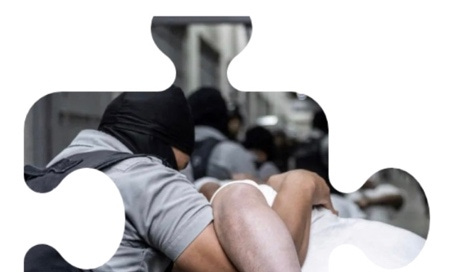





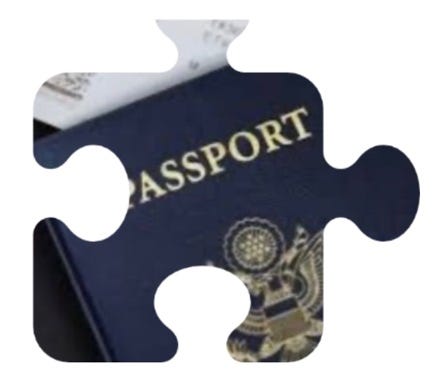





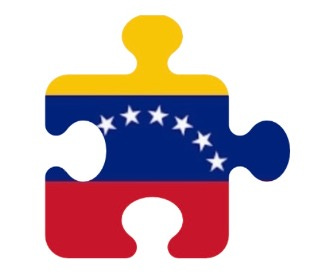








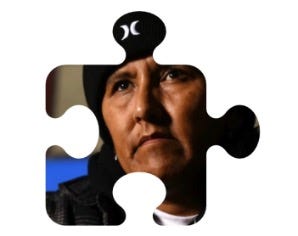












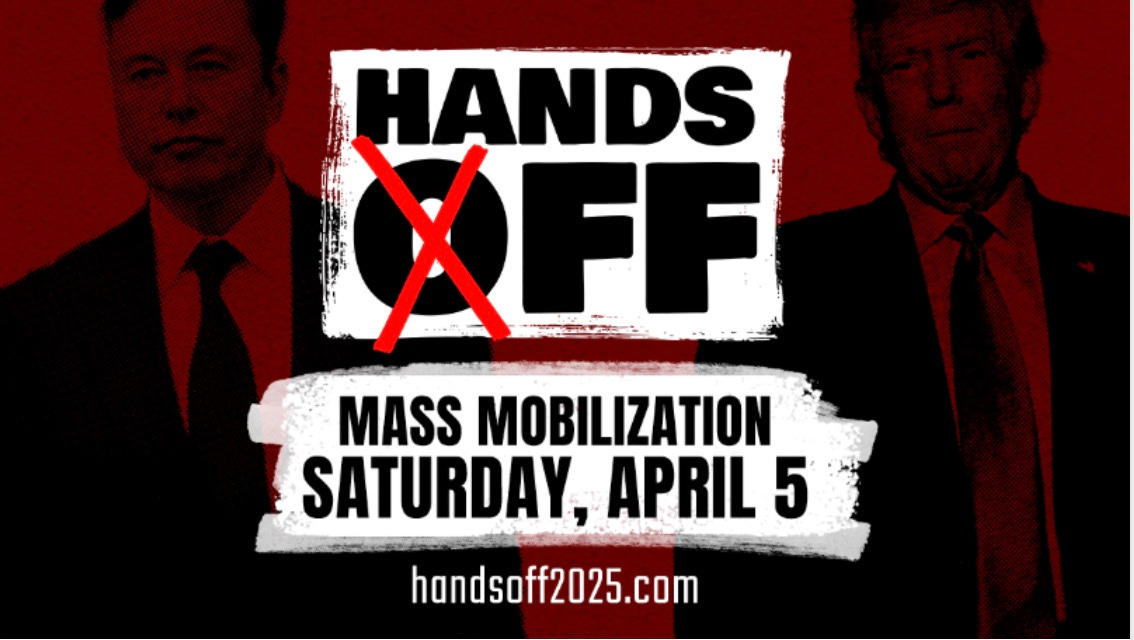
In Trump’s universe we are all deportables. Never doubt it.